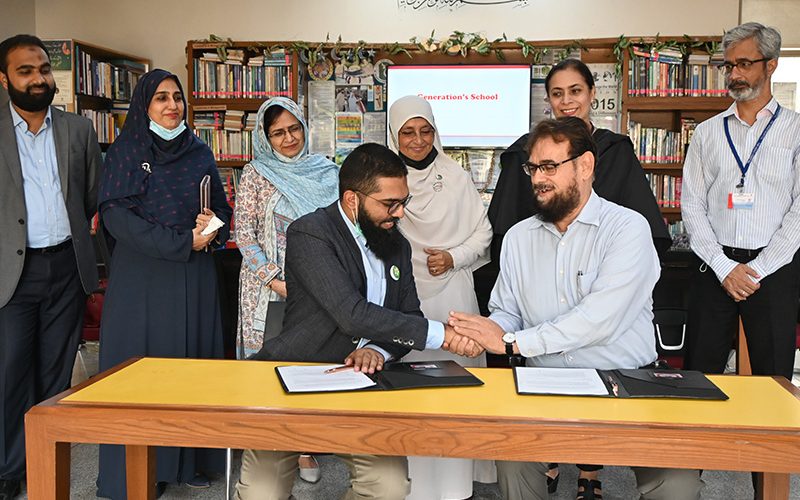Generation School partners with IHHN | Indus Hospital & Health Network
The Generation School Pvt. Ltd. signed a Memorandum of Understanding (MOU) on May 12, 2022, at the Generation School, Karachi with Indus Hospital & Health Network (IHHN) for its Indus Yaqeen (youth volunteership & ambassadorship program) and Indus Tarbiyat (saving to help save lives program).
The School has been inspiring children with values, attitudes and attributes, for them to be confident with their sense of purpose and identity while equipping them with knowledge, skills and aspirations for them to transform themselves and the society, to successfully meet the challenges of their generation, and beyond. With this partnership, students will have a platform to unleash their power of becoming change agents for the communities that need support.
Through Indus Yaqeen, students of Grade 8 – A’levels will have opportunities to use their knowledge, skills and discover their strengths to develop and execute creative solutions to help IHHN save lives. Students, will be creating awareness about current health issues of Pakistan, spread the word about IHHN and help raise funds to support the various causes of Indus.
The Indus Tarbiyat program aims to teach the younger generation about simple acts of kindness and how it can make a difference in the lives of the people in need. Through the “Box of Kindness” campaign students of Grade KG to Grade 7 will be nurtured to build the habit of saving and sharing their savings with the less fortunate members of our communities.
Following the signing ceremony, Dr. Abdul Bari Khan, CEO of IHHN, met to the students and faculty and shared his inspiring journey of establishing IHHN. He encouraged that as young enterprising youth, they must dream big, have faith in Almighty to achieve big in life. He also emphasized they each one of us should never forget the love and support their parents provide as it is for them that each one of us stands where we are.
Dr. Ghazala Siddiqui, CEO of Generation School Pvt. Ltd. and Mr Shoaib Siddiqi appreciated IHHN and Dr. Abdul Bari Khan for inspiring the students and providing Generation School an opportunity for its students to be conscious citizens of tomorrow and play their role in making Pakistan a healthier nation.




